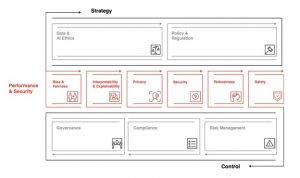2020 was one of the most challenging years in recorded history. With many paradigm-shifting developments, the year upended the lives of almost every person on this planet. Amidst the changing times that even left many soothsayers speechless, technologies such as the cloud emerged as a silver lining and enabled businesses and economies to adapt to the new normal and survive.
Cloud, which is the pillar of the data-intensive tech ecosystem, played a pivotal role during the pandemic to navigate the change, enabling enterprises to build effective supply chains and setting-up robust remote working environments for their expanded workforce. It empowered businesses to deliver essential services during the lockdown and successfully proved the possibility of creating a more sustainable world.
In 2021, cloud computing is expected to make an even more profound impact as most businesses would focus their strategies to recover from the pandemic. Let’s look at some of the key cloud computing requirements that will impact organizations’ tech ecosystems in 2021. (See: A case for cloud-enabled COVID-19 sensors and loggers)
1. Focus on new use cases
In 2021, cloud computing is expected to make even deeper inroads into organizations as most businesses would focus on building strategies to recover from the pandemic. In general, companies are likely to increase their dedicated IT spending to the cloud, opening the market for more innovations and new growth models.
Most importantly, with technologies like 5G around the corner, cloud service providers will have a massive role in developing new use cases using complementary technologies such as artificial intelligence and automation.
The battle of supremacy between top cloud service providers such as Amazon Web Services (AWS), Microsoft Azure, Google Cloud, and Alibaba is likely to become more intense in the year ahead.
Top cloud platforms — especially Amazon Web Service, Microsoft Azure, and Google Cloud — are expected to gain from this amplified focus. While AWS is likely to retain its supremacy, Microsoft, Google and Alibaba will continue to take aggressive steps to close the gap. To cater to the low-latency and high-redundancy capabilities required by several of these new applications, cloud service providers will look forward to adding intelligent edge capabilities in their solutions.
2. Hybrid and multi-cloud strategies to take center stage
As enterprises become more mature to understand the benefits of a strong cloud ecosystem, they also become more aware of adopting the multi-cloud approach to avoid the unnecessary risk of getting locked into certain vendors. And this cloud computing trend is likely to make a substantial impact in organizational tech ecosystems in 2021.
Kunwar Singh, Lead, Cloud Offerings portfolio across Microsoft Applications and Infrastructure Services, HCL, noted in an HCL blog post, “The hybrid cloud environment provides an essential blanket of security for mission-critical workloads, elasticity for delivery, and high performance to match the ever-growing need for constant innovation. To summarize, today, more than ever, hybrid cloud is an essential partner to businesses, as companies reposition themselves to maintain productivity, creating an efficient mobile workforce and staying poised to handle adversity.”
It is expected that organizations that plan to take a hybrid cloud route will focus on building an intelligent operative ecosystem to govern varied processes effectively.
3. More emphasis on governance and security
CIOs and technology leaders will continue to put more emphasis on deploying services without worrying about infrastructure overheads. Considering the continuous expansion of the distributed workforce, the industry will also focus on developing services and applications around network security, compliance, and privacy to secure sensitive data across the cloud ecosystem.
“For control, privacy, and regulatory concerns, private cloud has been leveraged to a greater degree as compared to public cloud services. From now on, the demand for public cloud services is also slated to rise along with a surge in private and hosted cloud models, ” says, Krishna Rao RV, Senior General Manager, IT AIG Hospitals.
While cloud security and governance will be a key focus area, it also remains one of the biggest challenges for organizations to expand their cloud programs. The industry is also battling with a massive shortage of IT Security professional talent and needs to find the best solution to resolve this issue. In the year ahead, there could be an upsurge of new talent programs and initiatives by the cloud computing providers to fortify necessary skill sets to drive further cloud adoption in enterprise tech ecosystems.











0 Comments